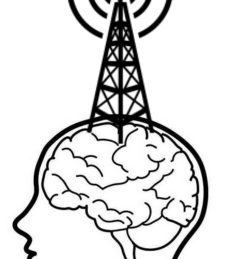 Here’s an answer I wrote a while ago to the following question:
Here’s an answer I wrote a while ago to the following question:
This is actually a fun question! Taken in the right spirit, it can be a good way to learn about what science is, and also what the limitations of science are.
What would count as proof that the brain produces consciousness? In the future we might try an experiment like this: we build an artificial brain. Let’s say we can all agree that it exhibits consciousness (leaving aside for now the extremely tricky question of what the word “consciousness” even means). Would this prove that the brain “produced” consciousness? Maybe.
But maybe the brain-as-antenna crowd would claim that their favored hypothesis hasn’t been ruled out. After all, if consciousness is somehow floating in the ether, how could we be sure that our artificial brain wasn’t just tuned to the ‘consciousness frequency’, like a gooey pink radio?
We’d need to construct some kind of cosmic-consciousness-blocking material, and then line the walls of our laboratory with it. Then we’d be able to decide on the question one way or the other! If our artificial brain showed no signs of consciousness, the antenna crowd could claim victory, and say “See!, you need cosmic consciousness in order to get biological consciousness! Consciousness is like yogurt: if you have some you can always make more.”
Constructing an artificial brain is hard enough. We have no idea if we will ever have enough understanding of neuroscience to do so. But constructing a consciousness-shield is straight out of science fiction, and just sounds absurd.
In any case, there’s actually a much bigger problem facing any scientific approach to consciousness. No one has any idea what consciousness is. Sure, there’s plenty of philosophical speculation and mystical musing, but in my opinion there’s almost nothing solid from a scientific perspective.
Here’s why I think science cannot ever address the subject of consciousness: science studies objectively observable phenomena, whereas the most crucial aspect of consciousness is only subjectively observable. What are objectively observable phenomena? They’re the ones that more than one person can observe and communicate about. Through communication, they can agree on their properties. So the word “inter-subjective” is a pretty good synonym for “objective”. Objectivity is what can be agreed upon by multiple subjective perspectives.
So the sun is a pretty objective feature of reality. We can point to it, talk about it, and make measurements about it that can be corroborated by independent groups of people.
But consciousness is not objective in the same way that the sun is. I do not observe anyone else’s consciousness. All I observe are physical perceptions: the sights and sounds and smells and textures associated with bodies. From these perceptions I build up a picture of the behavior of an organism, and from the behavior I infer things about the organism’s state of mind or consciousness. The only consciousness I have direct experience of is my own. And even my own consciousness is mysterious. I do not necessarily observe my consciousness. I observe with my consciousness. Consciousness is the medium for observation, but it not necessarily a target of observation.
Clearly all the scientists who claim to study consciousness would disagree with my perspective. Their approach is to take some observable phenomenon — either behavior or some neural signal — and define it as the hallmark of consciousness. There’s nothing wrong with defining consciousness as you see fit, but you can never be completely sure if your explicit definition lines up with all your intuitions about the boundary between conscious and non-conscious.
For example, Information Integration Theory (IIT) proposes that there is a quantity called phi (which at the current historical juncture appears impossible to compute) that captures the degree of consciousness in a system. Armed with this kind of theory, it is possible to argue* that extended, abstract entities — such as the United States as a whole — are conscious. Some people like this generous approach. Why lock up consciousness in skulls? The proponents of IIT have gone so far as to claim that they are okay with panpsychism: the idea that everything from quarks to quasars is at least a little bit conscious.
If everything is conscious, then the question of whether the brain “produces” consciousness — or the universe “transmits” it — becomes moot. There is no ‘problem of consciousness’, since it’s already everywhere.
Neuroscientists like me will probably still have jobs even if society decides to bite the panpsychist bullet. We have other things to worry about beyond consciousness. In fact many of us are actively uninterested in talking about consciousness — we call it “the c-word”. We’re happy to just study behavior in all its objectively observable glory, and hope to understand how the brain produces that. Whether and where exactly consciousness arises during this process seems like a question we can leave unanswered for a generation or two (while enjoying the various after-work conversations about it, of course!). For now we can focus on how our gooey pink radios give rise to language, or memory, or emotion, or even the basic control of muscles.
Notes
* Philosopher Eric Schwitzgebel wrote a very interesting essay entitled ‘If Materialism Is True, the United States Is Probably Conscious’.
More on the dreaded c-word!
Here are some consciousness-related answers that may be of interest:
How does the brain create consciousness?
What percent chance is there that whole brain emulation or mind uploading to a neural prosthetic will be feasible by 2048? [I’ve posted this one on this blog too.]
What are some of the current neuroscientific theories of consciousness?
What do neuroscientists think of the philosopher David Chalmers?
Is anything real beyond our own perspective?
What is the currently best scientific answer to the psycho-physical (body-mind) question?
Leave a Reply